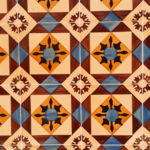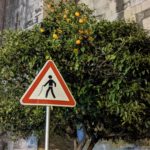DESCRIPTION OF THE EDUCATIONAL PROJECT OF RECIPROCAL KNOWLEDGE EXCHANGE NETWORKS
I – CONTEXT
The approach of reciprocal knowledge exchange networks was born in the seventies from the pedagogical experiences and reflections of Claire Héber-Suffrin, teacher at Orly. The initial idea is very simple: each person has differents knowledge and each person has different learning desires. The approach therefore consists of implementing a system that allows each person to be in turn a supplier and a requester, a transmitter and a purchaser.
For nearly forty years, the movement of networks for the reciprocal exchange of knowledge (MRERS) has proved that the approach works as well in the school, in the neighbourhood, in the city and in the classroom. It can be used in the service of school subjects: a child who has assimilated a particular rule of grammar or a particular geometry theorem can offer this knowledge to those who request it, and on the other hand, the person requesting a particular type of knowledge must be able to find a supplier who can satisfy him or her. However, it must be noted that today, even more than in the past, a great deal of knowledge is learned outside school. The organization of reciprocal exchanges of knowledge thus makes it possible to link knowledge learned outside school with school subjects.
In addition, as students exchange and experience both roles, they learn to reflect on learning approaches. Some recognize that they become more autonomous, more patient, more caring. After having themselves « crossed over the fence », young people approach teachers’ lessons differently. They discover that « nobody is sucks » which frees them to be interested in working and progressing; they also discover that because others are differents, they are interesting.
II- RIGOROUS, FLEXIBLE TRAINING ENGINEERING and COOPERATIVE CONSTRUCTION
– It is based on postulates: Everyone is the bearer of knowledge and ignorance. Everyone is capable of learning and learning to learn. Everyone is capable of teaching and learning to teach.
– It is based on a proposal: Everyone can contribute to putting his or her knowledge into circulation in his or her school, classroom, high school or university or neighbourhood. Everyone is therefore a knowledge provider and researcher or knowledge seeker.
– It is based on an ethical choice: All knowledge is a Right for all, considered interesting, important, for those who offer it and for those who seek it and for the whole network.
– It is based on a rule of the game: Reciprocity. Everyone is both teacher and learner, and this proposal establishes social parity, validated by the institutional recognition.
– It is based on a formative reciprocity: having the intention to instruct others, answering others’ questions and having as much desire to continue learning. Everyone experiences both statuses in this way.
– It is based on a system of mediation, of putting in touch between the future partners of the exchange who build together the modalities of learning.
III- VARIOUS AREAS OF INTEREST FOR THE SCHOOL
– To better understand and succeed in learning
The methodology of reciprocity has shown in and through many experiences over the past decades that schools and their actors are enriched with vital skills to address the essential elements of the common base of knowledge to live, act, learn and be.
Interaction between pupils transforms their relationship to fundamental learning: reading, writing and arithmetic are tools for gaining access to all other knowledge and understanding, making connections, deepening emerging and innovative knowledge and addressing the complex knowledge of the contemporary world.
Cooperative interactions develop their relationship to the world by implementing methodological skills: knowing how to sort, analyse, have a critical mind about media, social networks…
- The cognitive
We have understood to what extent this develops the desire to learn, the pleasure of learning, the curiosity to learn, the ability to question oneself, the ability to get by, and a certain amount of interpersonal and cognitive skills.
- Psycho-social competencies
The pedagogy of reciprocity responds well to the expectations of the skills expected in moral and civic education. Self confidence, reciprocal recognition, empathy, listening to others, to their arguments but also to their feelings, in order to recognize their qualities but also their weaknesses which must be taken into account so as not to put them in check, benevolence, cooperation, learning to seek, all this can be learned by living it all these skills imply learning, reciprocal adjustment, mutual aid and evaluation.
- School life
This pedagogy insists on the awareness of the knowledge necessary to
– Learning to live together
– Fighting violence
– Fighting harassment
- The notion of interdisciplinarity and project.
The pedagogy of the project, which requires interdisciplinarity, is driven by reciprocity.
A collective project is built as soon as the children get involved because it makes sense. The question of meaning responds at the same time to a need for meaning, a need for orientation and attention to sensitivity.
Interdisciplinarity is learned by living it: let’s say it again, children learn from what they experience.
- Values
Because the pedagogy of reciprocity is the encounter with the other in the respect of the rules, these relationships allow us to exercise our gift of learning:
– Cooperation rather than competition;
– Critical thinking rather than conformism;
– Commitment rather than consumption;
– Effort, study rather than entertainment and the search for immediate pleasure;
– Concentration rather than zapping away from social reality.
IV BIBLIOGRAPHY
HEBER-SUFFRIN, Claire. Échanger des savoirs à l’école, Chronique sociale 2004
HEBER-SUFFRIN, Claire. Des outils pour apprendre par la réciprocité, Chronique sociale 2016
KADRI, Fatima, DESGROPPES, Nicole, HEBER-SUFFRIN, Claire et Marc. Echanger les savoirs à l’école maternelle, Chronique sociale 2019
To learn more : https://www.rers-asso.org/index.htm ou https://www.rers-asso.org/l-ecole.htm






Comments by jlcazaillon